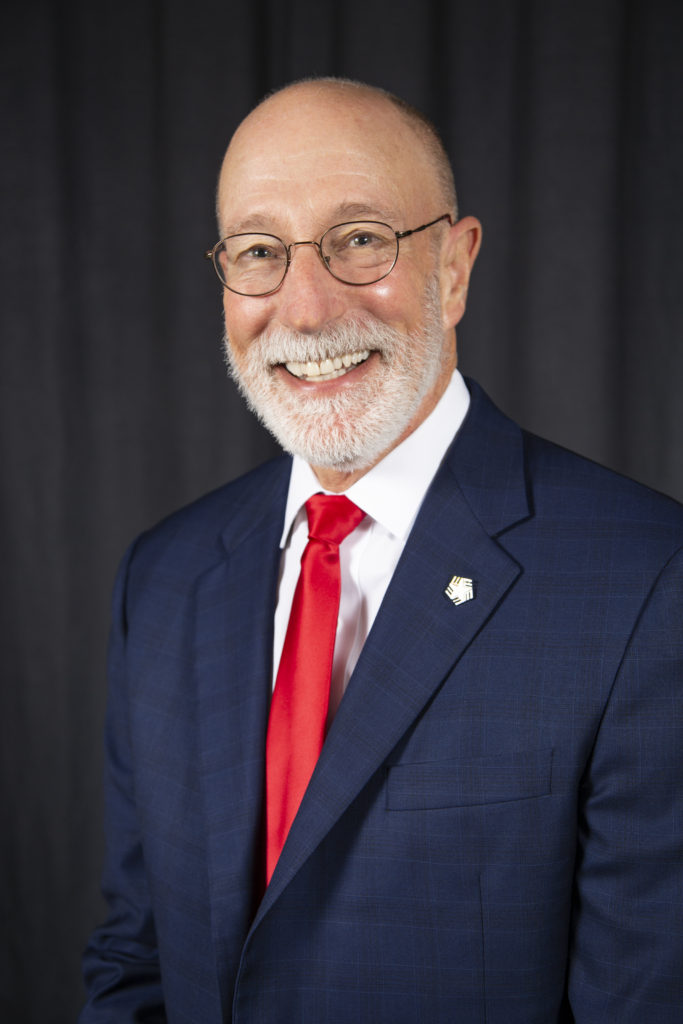
Several campus community members have expressed their thoughts and concerns about Dr. Kenneth Evans’s nomination as president-elect of OCU.
Last month, Student Publications conducted a survey of the campus community asking community members about their thoughts on Evans being selected as the new university president. According to the survey, 38 out of 54 campus community members did not approve of the presidential search committee’s choice. When asked to explain, several community members shared their worries about Evans’s potential ties to the oil and gas industry and an investigation into his administration at his previous university.
Several students have expressed their desire to make OCU a much greener campus. During each of the student-accessible presidential candidate forums, at least one student asked the candidates about shifting OCU to renewable energies and creating an Office of Sustainability to help oversee these changes.
Evans said during the forum that he would be willing to look into these issues.
“I don’t know all the pieces that are going to take to be able to do that here, to be honest with you, but I am very much in favor of that. I’d have to see a plan, and I would have to see it play out, but that would be a very positive and exciting objective,” he said.
However, students question if Evans will truly commit to the change because of his ties to the oil and gas industry. Some students cite his position on the board of the Texas Energy Museum and his creation of oil and gas student employment programs at some of his previous universities as indications of Evans’s connections to oil and gas. Students in the survey said they fear these ties may create a conflict of interest for the new president, especially in Oklahoma, where the state’s economy is mainly run on oil and gas.
Maya Ferrer, acting senior, said she felt as though Dr. Evans did not answer her questions honestly.
“Our generation is being left to deal with the effects of climate change that have been created and passed down to us by previous generations. And so, as 20-something-year-olds or under, it’s our responsibility to make sure that we’re holding those in power accountable for the climate crisis and that we are doing what we can to mitigate the climate crisis,” Ferrer said.
These concerns about conflict of interest are not without precedent. There have been several instances in education in Oklahoma where professors’ research has been censored. Dr. Mark Davies, Wimberly professor of religion, said when he was the dean of Petree College of Arts and Sciences, he was told by a previous OCU president, who was at the time a paid executive for Devon Energy, to speak with a student who had given a talk at a protest outside the Devon Energy Center. According to Davies, the president told him to warn the student about hanging pro-environmentalism posters around campus, but the student in question was not responsible.
“And then he tells me, and this is the exact quote: ‘if you ever go down and protest at Devon Tower, you will no longer be dean. You will just be a tenured professor,’” Davies said.
Evans said he has no ties to the oil and gas industry. He said his position on the board of the Texas Energy Museum is just to help market the museum’s fundraising events. As for creating employment programs at previous universities, he said the goal was to help bolster students’ career efforts.
“I have no official ties to the oil and gas industry, so whatever the perception is, is ill-founded. I produced students at both Oklahoma and here that were placed in the oil and gas industry because there was a demand for them and the universities had a capability to produce them,” Evans said. “At the end of the day, I am about making sure that we have the best possible placement of our students.”
Several community members also expressed their concerns about an investigation done by the faculty senate of Lamar University into Evans’s administration. In early 2019, a faculty member accused Evans of not disclosing LU’s budget, creating expensive programs without much student interest, changing students’ grades without permission from the professors and not giving professors a proper channel to air their grievances.
According to Dr. Brenda Nichols, vice president and provost at Lamar University, the professor making the allegation against Evans and the university administration presented the claims without any evidence of misconduct. The faculty senate at the time did not have a process set up to deal with these types of claims, so when they were brought to the attention of the faculty senate, they decided to launch the six-month investigation, during which Evans and Nichols provided all relevant information to the senate. Nichols said the investigation did not find any evidence supporting the accusations.
“Anybody can make any accusation about anybody, and they can get some voice out there somewhere that will give it a conduit for publication. I was a victim of that, OK, but the truth of the matter is, if you actually look at the outcome of it, there was none,” Evans said.
For more information on the faculty senate investigation and Lamar University’s response, readers can visit the respective links.


Leave a Reply